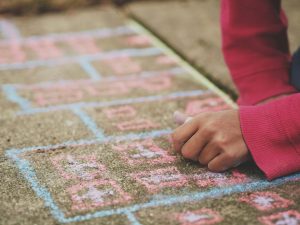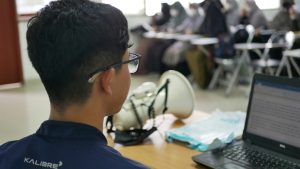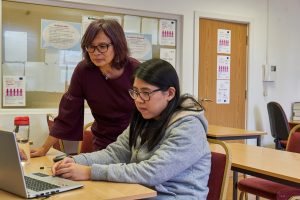Project-Based Learning: Real-World Skills for Modern Students
In today’s rapidly changing world, it has become crucial for students to develop real-world skills that go beyond traditional academic subjects. This is where Project-Based Learning (PBL) comes in. PBL is an innovative teaching approach that focuses on providing students with hands-on experience in solving real-world problems. It not only enhances students’ academic knowledge but also equips them with the practical skills needed to thrive in the modern world. In this article, we will explore the importance and benefits of PBL and how it can help students develop essential skills for their future success.
The Rise of Project-Based Learning
Gone are the days when memorizing facts and formulas was enough to succeed in life. Today, students are expected to have a broader set of skills that will help them navigate the complexities of the modern world. This shift in the educational landscape has led to the rise of Project-Based Learning, which focuses on developing students’ critical thinking, communication, collaboration, and problem-solving skills.
What is Project-Based Learning?
Project-Based Learning is an instructional approach that immerses students in a real-world problem or challenge. It involves students working together to investigate, analyze, and solve a problem, rather than just studying it. This hands-on learning approach requires students to apply their knowledge and skills to come up with a creative and practical solution.
Unlike traditional teaching methods, PBL places a strong emphasis on student-centered learning, where teachers act as facilitators and coaches rather than lecturers. This encourages students to take ownership of their learning, be self-motivated, and develop their skills independently.
Benefits of Project-Based Learning
Develops Real-World Skills
The most significant advantage of PBL is that it helps students develop skills that are needed in the real world. In most traditional classrooms, students are confined to textbooks and tests, leaving them unprepared for the challenges of the real world. PBL, on the other hand, allows students to practice skills such as critical thinking, problem-solving, creativity, communication, and teamwork, which are essential in their future careers.
Enhances Learning Retention
One of the main criticisms of traditional rote learning is that students tend to forget the information they memorized soon after a test. PBL helps students understand concepts better and retain knowledge for longer as they are actively engaged in the learning process. By working on a real-world problem, students are more likely to remember and apply what they have learned in their future endeavors.
Promotes Personal and Social Development
Project-Based Learning also has a positive impact on students’ personal and social development. By working in teams, students learn how to communicate, collaborate, negotiate, and delegate tasks effectively. This not only improves their interpersonal skills but also prepares them for the diverse and collaborative workplace they will encounter in the future.
Incorporating Project-Based Learning in Today’s Curriculum
Although PBL has gained popularity in recent years, it is still not widely implemented in most schools. One of the main reasons for this is the lack of resources and guidance for teachers to implement PBL effectively. However, with the rise of online learning platforms and digital tools, it has become easier for teachers to incorporate PBL in their curriculum.
Teachers can use online platforms to create and share projects, resources, and assessments. Digital tools, such as project management software, can also help students collaborate and manage their projects more efficiently. Furthermore, teachers can connect with other educators and experts through online communities to exchange ideas and best practices for implementing PBL in their classrooms.
Conclusion
In a world where information is readily available at our fingertips, it is not enough for students to simply memorize facts and figures. Project-Based Learning provides a holistic approach to education, where students not only gain knowledge but also develop vital real-world skills. As educators, it is our responsibility to equip students with the tools and skills they need to thrive in the modern world. By incorporating Project-Based Learning in our curriculum, we can help students become well-rounded individuals who are prepared for the challenges and opportunities that lie ahead.










